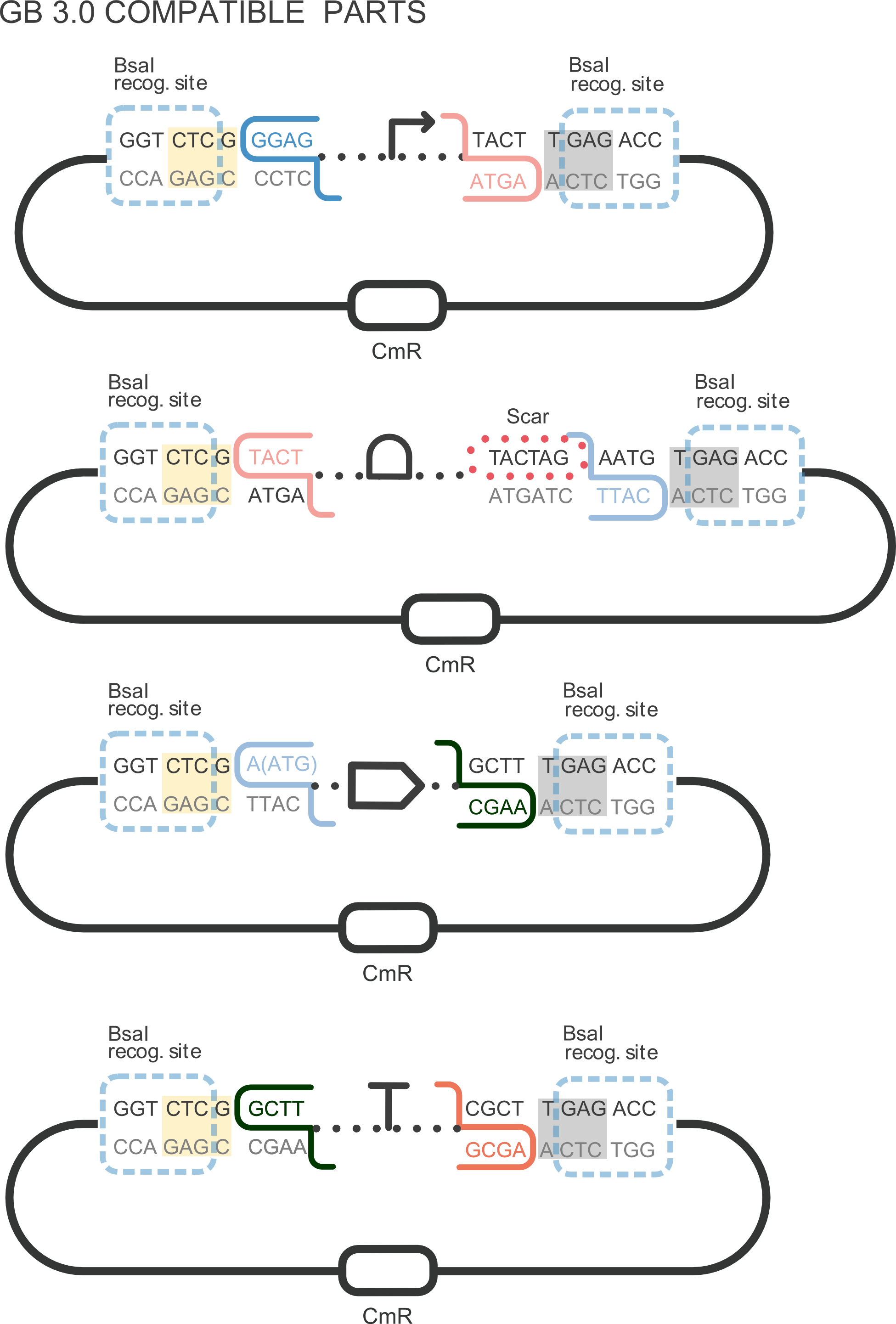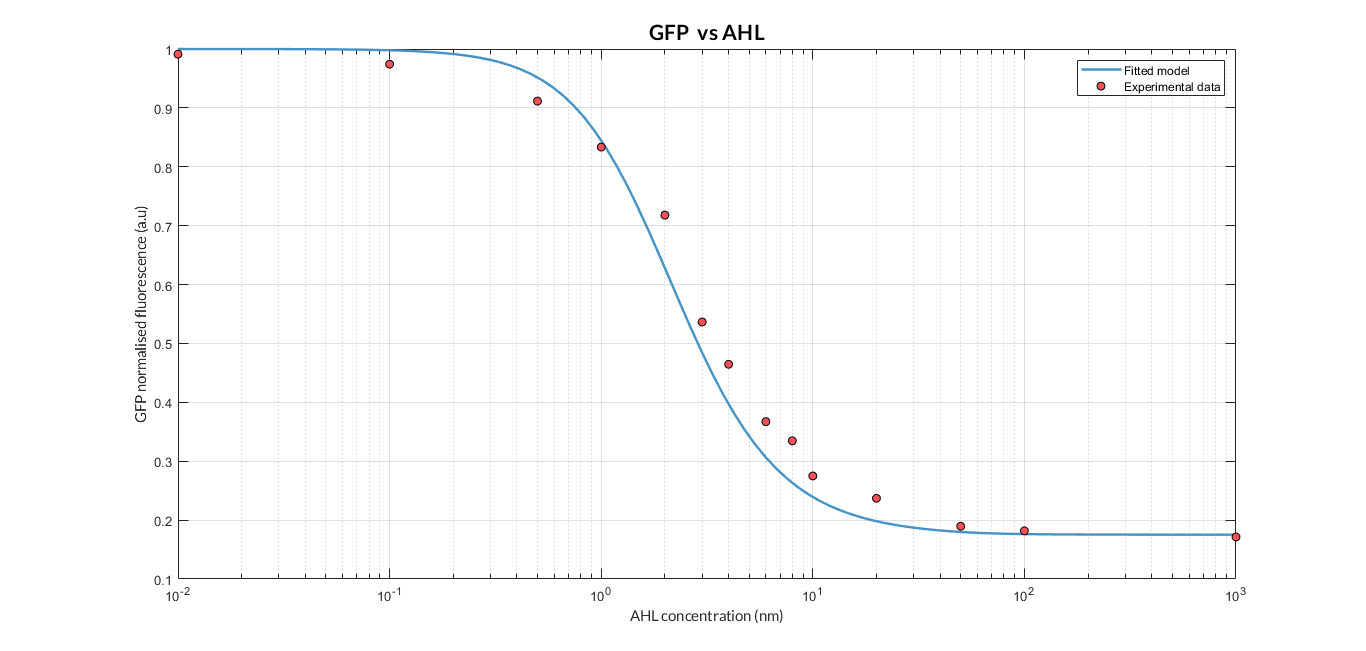Difference between revisions of "Part:BBa K2656016"
Alejovigno (Talk | contribs) |
|||
| (11 intermediate revisions by 2 users not shown) | |||
| Line 3: | Line 3: | ||
<partinfo>BBa_K2656016 short</partinfo> | <partinfo>BBa_K2656016 short</partinfo> | ||
| − | Part | + | [[File:T--Valencia_UPV--im11UPV2018.png|200px|thumb|left|alt=domestication.|Figure 1. DNA basic parts domestication. Third construction corresponds with CDS Basic Part adaptation into the GoldenBraid grammar. ]] |
| + | |||
| + | Part BBa_K2656016 is the transcription factor LuxR coding sequence [https://parts.igem.org/Part:BBa_C0062 BBa_C0062] compatible with both Biobrick and [http://2018.igem.org/Team:Valencia_UPV/Design GoldenBraid 3.0] assembly methods. It acts on the lux promoters when activated by Acyl-homoserine-lactone. It can be combined with other compatible parts from our [http://2018.igem.org/Team:Valencia_UPV/Part_Collection Valencia UPV IGEM 2018 Printeria Collection] to assemble transcriptional units with the <html><a href="https://static.igem.org/mediawiki/parts/b/bc/T--Valencia_UPV--protocols.pdf#page=27"> Golden Gate assembly protocol </a></html>. | ||
| + | |||
| + | This part used to construct the composite part [https://parts.igem.org/Part:BBa_K2656114 BBa_K2656114]. Composite part [https://parts.igem.org/Part:BBa_K2656114 BBa_K2656114] was then used together with [https://parts.igem.org/Part:BBa_K2656116 BBa_K2656116] in order to characterize the pLux repressible promoter [https://parts.igem.org/Part:BBa_K2656002 BBa_K2656002]. | ||
| + | |||
| + | By using this [http://2018.igem.org/Team:Valencia_UPV/Experiments#exp_protocol experimental protocol] and inducing at different AHL concentrations, we have obtained the following experimental measures (in blue dots). These measurements were compared with our [http://2018.igem.org/Team:Valencia_UPV/Modeling#models constitutive AHL-LuxR model] to test it. | ||
| + | |||
| + | [[File:T--Valencia_UPV_AHL_UPV2018.png|900px|thumb|none|alt=AHL experiment.|Figure 3. AHL induction experiment and comparison with our model simulation.]] | ||
<!-- Add more about the biology of this part here | <!-- Add more about the biology of this part here | ||
Latest revision as of 03:57, 18 October 2018
LuxR TF Coding Sequence
Part BBa_K2656016 is the transcription factor LuxR coding sequence BBa_C0062 compatible with both Biobrick and [http://2018.igem.org/Team:Valencia_UPV/Design GoldenBraid 3.0] assembly methods. It acts on the lux promoters when activated by Acyl-homoserine-lactone. It can be combined with other compatible parts from our [http://2018.igem.org/Team:Valencia_UPV/Part_Collection Valencia UPV IGEM 2018 Printeria Collection] to assemble transcriptional units with the Golden Gate assembly protocol .
This part used to construct the composite part BBa_K2656114. Composite part BBa_K2656114 was then used together with BBa_K2656116 in order to characterize the pLux repressible promoter BBa_K2656002.
By using this [http://2018.igem.org/Team:Valencia_UPV/Experiments#exp_protocol experimental protocol] and inducing at different AHL concentrations, we have obtained the following experimental measures (in blue dots). These measurements were compared with our [http://2018.igem.org/Team:Valencia_UPV/Modeling#models constitutive AHL-LuxR model] to test it.
Sequence and Features
- 10COMPATIBLE WITH RFC[10]
- 12COMPATIBLE WITH RFC[12]
- 21COMPATIBLE WITH RFC[21]
- 23COMPATIBLE WITH RFC[23]
- 25COMPATIBLE WITH RFC[25]
- 1000COMPATIBLE WITH RFC[1000]


